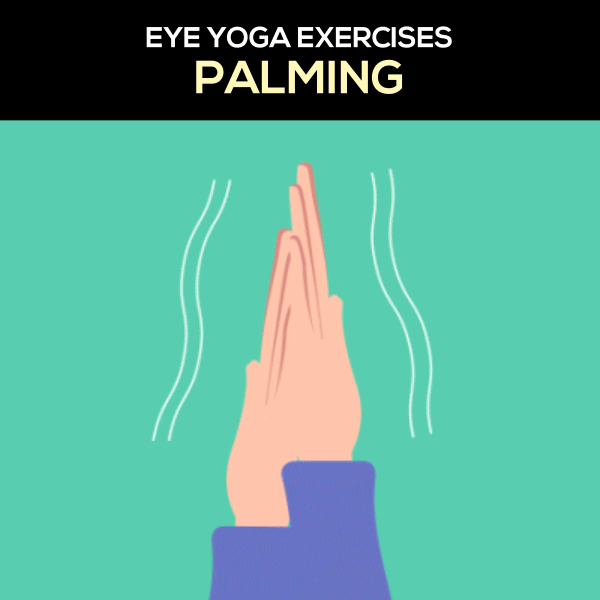
A study in 2006 found that people practicing Tai Chi regularly had a reduced fear of falling. This is possible because taichi emphasizes fluid movement whereas yoga focuses more on poses. This exercise is great for people who are healthy and for those who have heart disease, diabetes, or other chronic conditions. Classes are offered at gyms and community centers. Some tai chi schools have a therapist on staff, and many provide customized fitness programs.
Research has shown that Tai Chi can lower blood pressure in people who have high blood pressure. Tai Chi, along with a decreased sodium intake and weight loss may help lower blood sugar. It may also improve the levels of cholesterol and other lipids in the body. Tai chi is also known to reduce your risk of developing coronary heart disease. These are just preliminary results. More rigorous research is required to confirm the benefits.

Research shows that tai Chi may benefit people with various ailments. Deep breathing can improve mental health. According to Stanford Medicine articles, deep breathing may reduce depression, stress, anxiety, and other symptoms. The exercises train the brain to focus actively and can even reduce the risk of a stroke or heart attack. Tai chi can be used to treat a wide variety of illnesses.
The benefits of tai chi have long been associated with the mental health of its practitioners. Although the evidence to support this connection is still scant, it seems that there is a strong link between Tai chi and mental health. The 2010 meta-analysis involving 40 studies didn't yield any conclusive findings. However, recent research in Tai chi and cognition shows promising results. This systematic review and meta analysis of 2,553 adults with cognitive impairments who were practicing Tai Chi in 2014 included 2,553 individuals. It found that taichi exercises are beneficial for both mental as well as physical health.
Another study revealed that taichi enhanced the functioning of prefrontal cortex. This part of the brain is responsible for higher level thinking. Participants in the tai chi study reported a reduction in symptoms and improved moods and concentration. Tai chi is associated with a lower likelihood of a fracture of the hip.

Tai chi might have several benefits including lower blood pressure and better digestion. It may even be able to reduce pain. In addition, the meditative aspects of tai chi are believed to improve general health. Tai chi's success could be tied to its mind-body connection, which can be achieved through meditation practice and taichi.
FAQ
Why is it so important to improve our emotional health?
Well-being and happiness are tied to emotional well-being. Without emotional health, you will not be able work at your best. People with depression are often unable to work efficiently. Anxiety, panic attacks or insomnia may be common symptoms. These conditions can be successfully treated with medication or therapy.
What is the importance of mental health?
Everyone's mental health is important. Mental health is essential for everyone. It is important to have a healthy mind.
Our bodies will begin to show signs of stress if they aren't feeling well. This could cause problems in the body such as backaches, stomachaches, headaches and stomach pains. Our bodies and minds must be well looked after.
What can I do if I have mental health problems?
It's imperative to seek help when you're struggling with any mental health issue. Perhaps you've been through trauma or suffered abuse in the past. It's possible that this has affected how you think about yourself.
Another type of mental illness you might be experiencing is an addiction or eating disorder. These disorders can have a devastating effect on your life.
You should not attempt to resolve them by yourself. Instead, talk to someone who can help you. These challenges can be overcome with the help of a professional therapist.
What can I do to prevent mental health problems?
It's not always easy to prevent mental illness. Here are some points to keep your mind clear:
-
Don't drink alcohol. You can have a negative effect on your mood and increase your chance of getting depressed.
-
Avoid drugs. Drugs can affect your brain chemistry and make you feel worse.
-
Sleep enough. A lack of sleep can cause anxiety and depression.
-
Exercise regularly. Exercise makes you feel happy and releases endorphins.
-
Make sure you eat healthy foods. Junk food can make you feel lazy and unwell.
-
Spend quality time with those you love. Spending time with those you love can improve your mood.
-
Have fun. Enjoy life and try new things.
-
Retire from social media. You may feel isolated or lonely on social media.
-
Be kind to yourself. Treat yourself nicely, even if you aren't feeling great.
-
Ask for help. Ask for help if it's difficult to cope. Talking to your family member or friend can be very helpful.
-
Remember that it's okay to cry. The act of crying helps relieve stress and tension. It doesn't necessarily signify that something bad has happened.
-
Keep busy. Do something that you love.
-
Maintain good hygiene. Neglecting to maintain a clean environment can lead to a feeling of unattractiveness and lackluster appearance.
-
Stay connected. Staying connected with others can help you remain positive.
-
Learn how you can relax. Meditation and yoga are two relaxation techniques that can help you deal with stress better.
-
Find meaning in the things you do. Finding purpose in your work and hobbies can give you a sense of fulfillment.
-
Concentrate on the moment. You won't worry about the future if you are focusing on the moment.
-
Set goals. Setting goals can motivate you to achieve them.
-
Do something nice to yourself. Doing something nice for yourself can boost your self-esteem.
-
Practice gratitude. Gratitude can help you appreciate all the good things in your life.
-
Volunteer. Volunteering is a great way to have fun and make a positive impact in the world.
-
Give back. Giving back to others can make it feel fulfilling.
-
Watch out for warning signs. If you notice any changes in behavior, don't hesitate contacting help.
What is positive psychology and why is it important?
Positive psychology emphasizes what makes us feel good about ourselves. This includes happiness, optimism, gratitude and hope. The goal of positive psychology is to help individuals become happier, healthier, and wiser through self-improvement.
There are two types if positive psychology: trait-positive psychology and process-positive psychology. Trait positive psychology examines how people behave naturally. How we can use certain strategies for achieving specific goals in process positive psychology
How does one know if he/she has a mental illness?
If a person experiences symptoms that affect their daily lives, they may be diagnosed as having a mental disorder. Symptoms of mental illnesses vary from person to person. However, the most common symptoms include: feeling sad, anxious, angry, guilty, hopeless, lonely, depressed, confused, worthless, guilty, suicidal, etc.
If a person meets at least three of the four criteria below, they may be diagnosed with a mental disorder.
-
Disturbed feelings or thoughts
-
Disturbed behavior
-
Disruption in functioning
-
Reduced ability to relate to others
What can I do to improve my mental health and well-being?
Everybody needs to be healthy, especially if they are under stress at work, school or home. You can improve your mental health by exercising regularly, eating healthy foods, sleeping well, and spending quality time with family members. Exercise releases endorphins which makes us feel happier. Good nutrition is essential for a healthy body. Being well rested gives you energy for the day. Spending quality times with loved one improves relationships and reduces stress.
Statistics
- More than 40 million adults in the United States have an anxiety disorder, but less than 37% of people seek mental health treatment for their symptoms. (talkspace.com)
- It means no drinking any alcoholic beverages and no taking any drugs that aren't 100% natural.
- More than 50% will be diagnosed with a mental illness or disorder at some point in their lifetime.3 (cdc.gov)
- Appropriate nutrition and exercise are likely among the most efficacious and cost-effective positive mental health interventions. (ncbi.nlm.nih.gov)
- In any given year, an estimated 18.1% (43.6 million) of U.S. adults ages 18 years or older suffered from any mental illness, and 4.2% (9.8 million) (healthypeople.gov)
External Links
How To
How To Improve Your Memory
Everyone wants to be better at remembering things. Memory loss happens to everyone at some time. More than half of Americans aged 65 and older suffer from dementia.
It doesn't matter whether you're dealing with Alzheimer's, dementia, or other forms of cognitive decline; you have a lot of options when it comes to improving your memory. Here are three simple steps to take right away:
-
Get More Fruits and Vegetables. Vegetables contain phytochemicals, vitamins, nutrients, fiber, antioxidants, and minerals that enhance brain function. They also contain essential nutrients that protect against neurological disorders.
-
Get enough sleep. Sleep deprivation has been linked to poor concentration and memory loss. Get seven to 8 hours of uninterrupted sleep every night.
-
Take a Walk. Walking stimulates blood flow and improves memory. Walking helps you look slimmer, healthier, and more energetic.